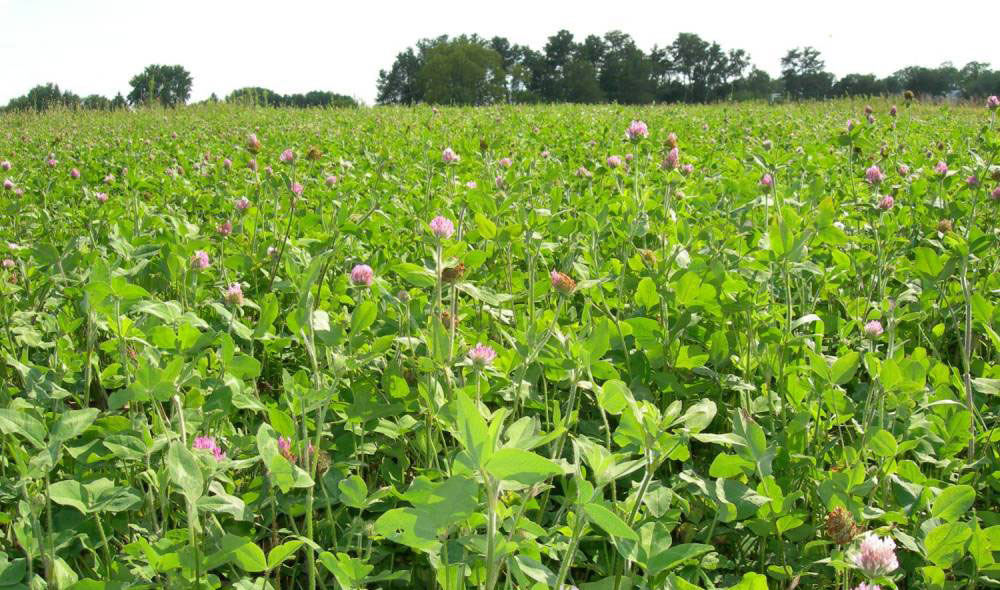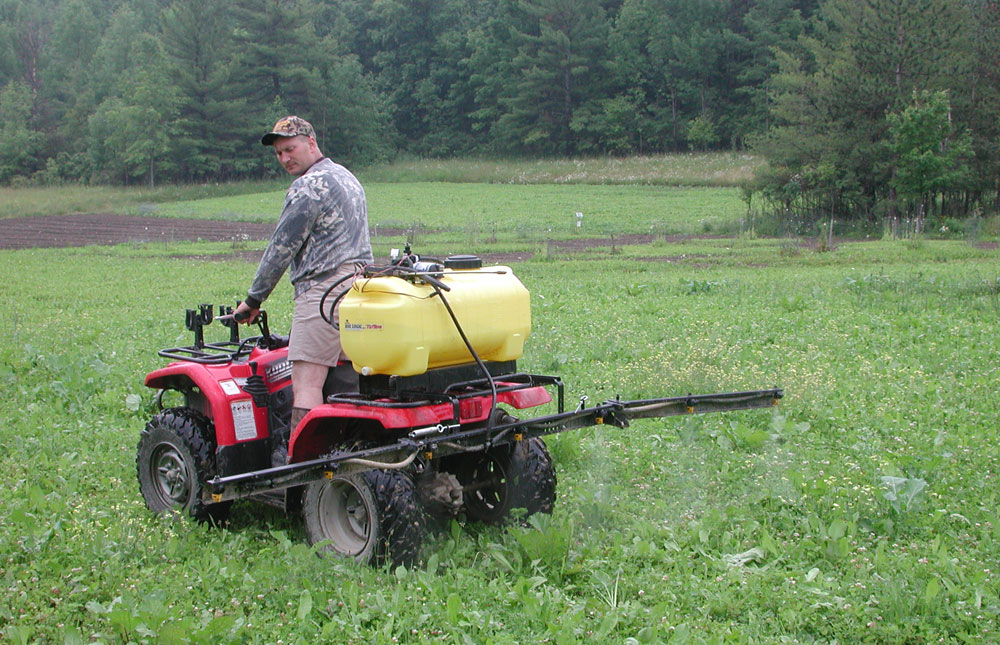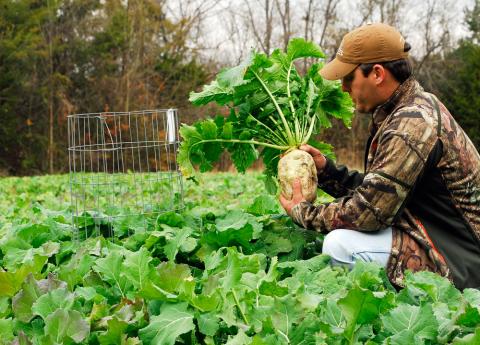Mossy Oak feels fortunate to have members of our Pro Staff who are seriously trying to improve habitat and food availability to produce more wildlife on the lands they hunt. One such GameKeeper Pro is Travis Sumner from Edgefield, South Carolina. Sumner is the Hunting Heritage and Habitat Manager for the National Wild Turkey Foundation (NWTF). He also manages the Mossy Oak GameKeepers Southeast Field Staff.
The GameKeepers Pro Staff is a group of people who not only hunt, but also manage the lands and the wildlife that live on them to produce more and better wildlife all year long. GameKeepers is an integral part of the Mossy Oak family. We manage the game and the habitat for deer and turkey, and we also try to improve habitat for game birds, songbirds and non-game species. We work with Mossy Oak BioLogic products, Nativ Nurseries products, as well as others to create habitat that the game must have to survive, grow, and increase. We implement wildlife and habitat management with hunting to do our part to have an abundance of all types of game to hunt.
GameKeepers wants to spread the word on how to target and manage land for specific species like deer, turkey, doves, ducks, quail and other small game. Deer and turkey seasons are closed throughout the country now, and many deer and turkey hunters won’t think about these critters and the lands where they live until the season is about to open next fall. But this is the time of year – in the early summer - that GameKeepers work to make sure there’s plenty of game on the land when hunting season opens for the upcoming year.

Caring for Clover
One of the tasks GameKeepers do at this time of the year is maintenance on perennial fields like clover. A quality clover field can produce a lot of forage for wildlife for the majority of the year. With proper maintenance and favorable weather, a hardy variety of white clover like Non-Typical can last 3-5 seasons. Right now in the NWTF clover fields, we’re getting rid of all the rye grass and weeds that have sprouted up there. Weeds will compete with the clover for nutrients and water. So, by getting rid of those weeds with an herbicide now, our clover will have more nutrients and water to use going into the summer months. There are several herbicides available to kill and control grasses in clover while keeping it safe and healthy.
Grass specific herbicides that utilize clethodim as the active ingredient are very safe to use over legumes like clover. One of the easiest to use is the Weed Reaper formula by BioLogic. This grass specific herbicide already has a surfactant loaded in with the clethodim for an accurate and effective application on your legumes. The 16-ounce bottle will treat an acre and can be used with any ATV/UTV, tractor, or even hand sprayers.
After eliminating grasses by spraying, we put out about 200 pounds of fertilizer per acre on our clover plots. Being a legume that affixes its own nitrogen from the atmosphere, clover doesn’t need a nitrogen fertilizer, so ideally you want to use a blend like a 0-20-20. After fertilizing, I watch my clover plots until the majority of the field has a bloom. During and shortly after the blooms begin to dry out, it’s a good time to mow the top off the clover. I just want the blade of my bush-hog or mower to cut off the heads of the clover that have turned brown and gone to seed. By giving your clover a cut like this, you’re actually helping to encourage new stolon growth and increasing new root development. Remember that you just want to clip the tops of the clover. You don’t want to mow the clover down so that your clover looks like a lawn or putting green. Mowing clover also helps to knock out broadleaf weeds before they reach maturity and produce seed.
I've been managing the clover patches here at the NWTF and on private lands that I manage for 5-6 years without ever having to go back and replant. Using this system of proper herbicide application, yearly soil sampling and fertilization, and effective mowing, those fields of clover have not only survived but thrived. Soil type, weather, and proper management all play a big part in the longevity of a perennial food source like clover.
In the latter part of the summer and even early fall, your clover fields, especially in the Deep South, may look like the sun has burned them up, and the lack of rain has caused them to die. The stress can cause clover to go slightly dormant to protect its root structure. Once temperatures cool off some and rain returns, clover will usually jump back out as long as the pH and fertility of the soil are in check. This stress in the dead of the summer can let weeds start to creep in and get a foothold in the plot. Be sure to identify them early in their growth and get the proper herbicide applied, so your clover has its best chance at coming back out.
Making Clover Last

A helpful tip to remember when cutting your clover fields, and really any plot for that matter, is to keep weed seeds washed off your equipment. Anytime you mow an area that has grasses and weeds that are in the seed-producing stage, these seeds collect on the bush-hog deck and all over the tractor. When the equipment is moved and used in a clean field you have been managing, these seeds can easily blow off and contaminate a good field. Or, if you've used your bush-hog to cut the grass in your pastures and around your home and outbuildings, your tractor and attachments are picking up those seeds from those grasses and depositing them in your clover fields. Your wildlife obviously doesn’t care if your plots are perfectly weed free; what we do want to do is prevent highly invasive weeds like Johnson grass, pigweed, marestail, and others from taking over the plot. Simply carrying a broom or blower with you and cleaning up your equipment before moving to a clean field can help cut down on weed control down the road.
You may think that using herbicides, fertilizers and possibly a second herbicide treatment during the off-season is a lot of work and a lot of expense. However, if you can get several years of utilization out of your clover fields instead of having to replant every year, you may save some money and time. Clover can provide almost year-round food for wildlife with good weather and proper maintenance. Proven varieties of clover like those used in BioLogic’s Clover Plus and Non-Typical Clover are highly researched for longevity, nutrition, and maximum forage production. Perennials have a lot of reasons to be the cornerstone of your food plot program.



























